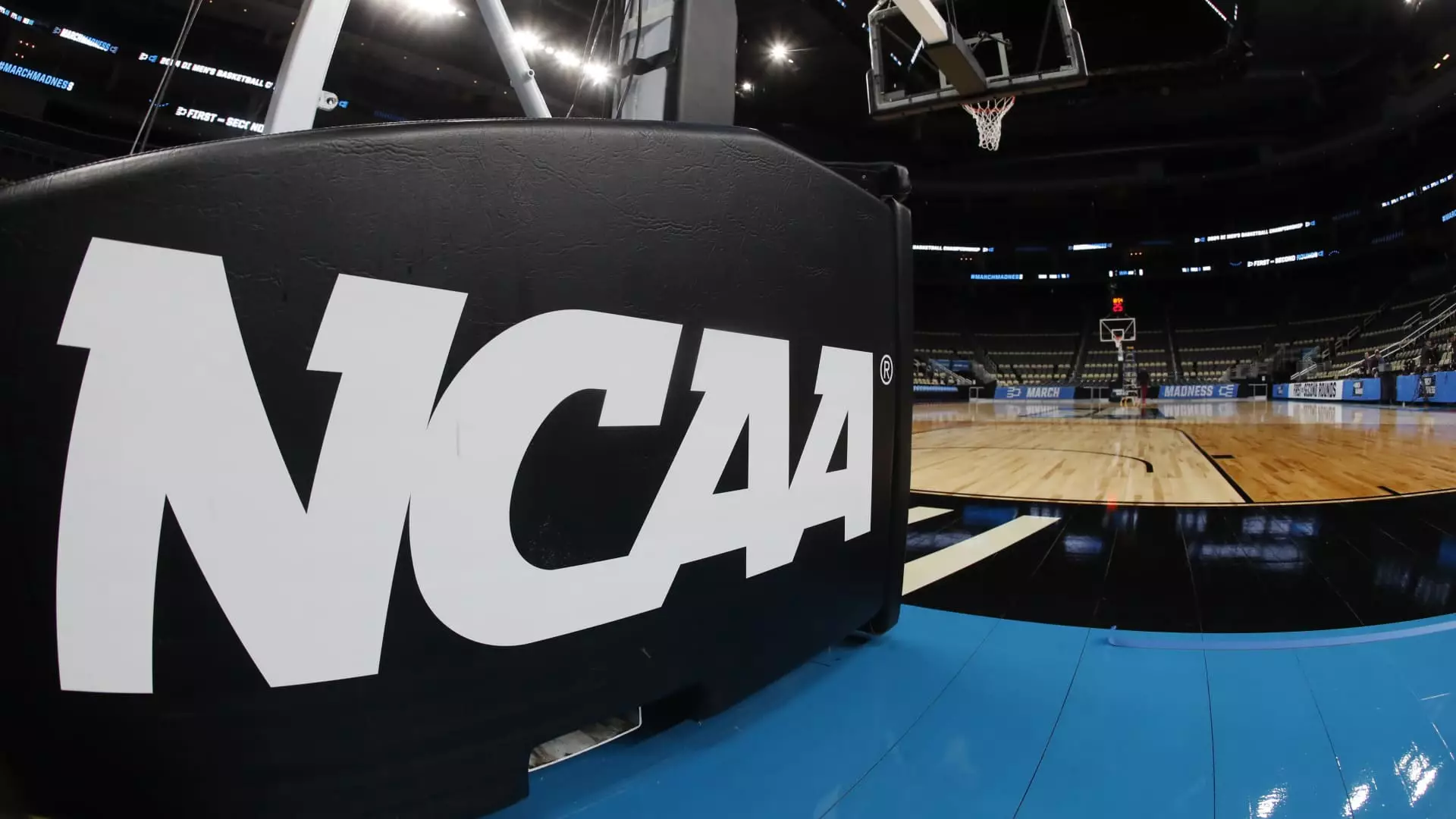The evolving landscape of sports and gender rights has once again reached a critical juncture with the recent decision by the National Collegiate Athletic Association (NCAA) regarding transgender student-athletes. This policy update, introduced amid a politically charged environment, raises profound questions about inclusion, fairness, and the implications of defining gender in binary terms. The new standards restricting trans women from participating in women’s sports not only reflect broader governmental influences but also signal significant challenges and changes within collegiate athletics.
On a Thursday filled with controversy, the NCAA announced a shift in its transgender athlete policy, coinciding with President Donald Trump’s executive order aimed at penalizing educational institutions that allow trans women to compete in women’s sports. The decision prohibits students assigned male at birth from participating in formal competitions on women’s teams, although they may still practice and access certain benefits. Meanwhile, students assigned female at birth who utilize testosterone or similar therapies also face restrictions. This confluence of NCAA policy and political maneuvering suggests a troubling trend of governance increasingly dictating the realm of sports, a sector traditionally governed by its own set of standards and values.
The NCAA formerly adopted a more lenient approach inspired by Olympic standards, which recognized the complexities of gender identity and the nuances of eligibility. Strikingly, the new policy reflects a regression to a binary framework that does not account for the rich diversity of gender identities present in the athlete community. While the NCAA claims to prioritize consistent standards across the board, the reality paints a different picture—a landscape where individual identities risk being overshadowed by political agendas.
The pushback against these regressive policies has been robust, with numerous advocacy groups and influential athletes vocalizing their concerns. Prominent figures like Chris Mosier, a transgender triathlete, have articulated the limitations of viewing gender purely through an assigned-at-birth lens. Mosier points out that such a narrow perspective not only neglects the existence of nonbinary identities but also undermines the rights and experiences of intersex athletes, who may not fit neatly within traditional definitions. The implications of these new regulations therefore extend far beyond a simple sports policy; they intertwine with broader social justice issues affecting marginalized communities.
Organizations such as GLAAD have decried the updated NCAA policy as premature and dangerously uninformed by scientific and medical expertise. Their concerns highlight the necessity for policies grounded in inclusiveness rather than political posturing. This sentiment resonates with many within the LGBTQ+ community who perceive the recent changes as a direct threat to years of advocacy for equal rights and representation in sports.
As the NCAA grapples with its role in regulating and supporting a diverse athletic community, it finds itself at a crossroads. The need for an open and thoughtful discussion about how best to include trans and nonbinary individuals in sports is paramount. While concerns about fairness in competition are not unfounded, they must be balanced with the rights of all athletes to feel included and valued in their respective sports. The complex intersection of gender identity and athletic eligibility requires nuanced policies that reflect both scientific understanding and a commitment to equity.
Ultimately, the recent policy changes by the NCAA should serve as a catalyst for deeper conversations surrounding the inclusion of all student-athletes, irrespective of their gender identity. Moving beyond binary classifications and focusing on individual athlete needs can foster an environment where everyone can thrive. In a world where acceptance and understanding are increasingly vital, it is crucial for sports organizations to champion diversity rather than constrict it. The future of collegiate athletics depends on an unwavering commitment to inclusivity and respect for all athletes, ensuring that they can compete freely and authentically.


Leave a Reply